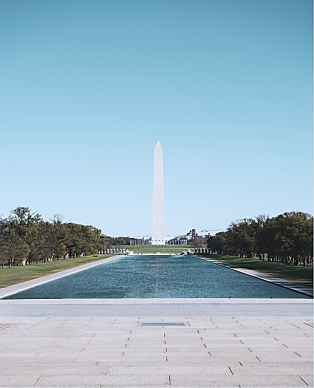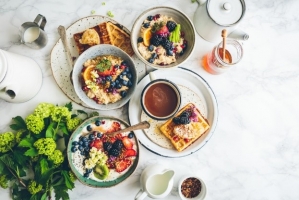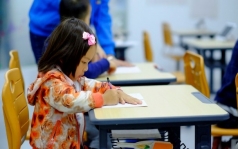Knowledge Exchange
2020/21
|
Remembering Painful Past: A Mobile Geolocation Application for Visitors of the National Mall in Washington, DC |
|
 |
Project Coordinator: Dr. Tim Gruenewald Objectives: This project creates and promotes a mobile geolocation application about painful history on the National Mall in Washington, DC. Using augmented and virtual reality functionality, the app teaches site specific national and local history such as the use of slave labor to build iconic sites (e.g. White House, United States Capitol.) Such important information is currently not presented to visitors on the National Mall. This project responds to the demand from the 2020 protest movement to face America's painful past. Such memory provides a deeper understanding of the present in the hope of enabling a more just future. |
Food for Thought: Online and Print Media Project |
|
 |
Project Coordinator: Dr. Joe Yen Fong Lau Objectives: This project aims to develop content related to the philosophy of food, discussing topics of interest to the general public. Themes include animal rights, genetic engineering, globalization, capitalism and the free market, objectivity of taste, food as art, regulations on food and drugs, mindful eating, etc. Outputs include (1) a book on the philosophy of food, and (2) online publications on existing websites and social media. |
Empowering Disadvantaged Communities in Hong Kong through Storytelling and Creative Writing |
|
 |
Project Coordinator: Dr. Pei Yin Lin Objectives: This project aims to empower disadvantaged communities in HK (specifically to start: ethnic minorities and domestic workers) through storytelling and creative writing so that they can better record and take pride in their shared history, culture, and identities. Phase One offers five 2-hr free English-language workshops focusing on life writing, while guidance will be provided for exploring other genres. In Phase Two, students will revise their work with their teacher in two sessions, and share their stories with the general population in a public forum. In Phase Three, interviews will be conducted to find out the response of those students. |

